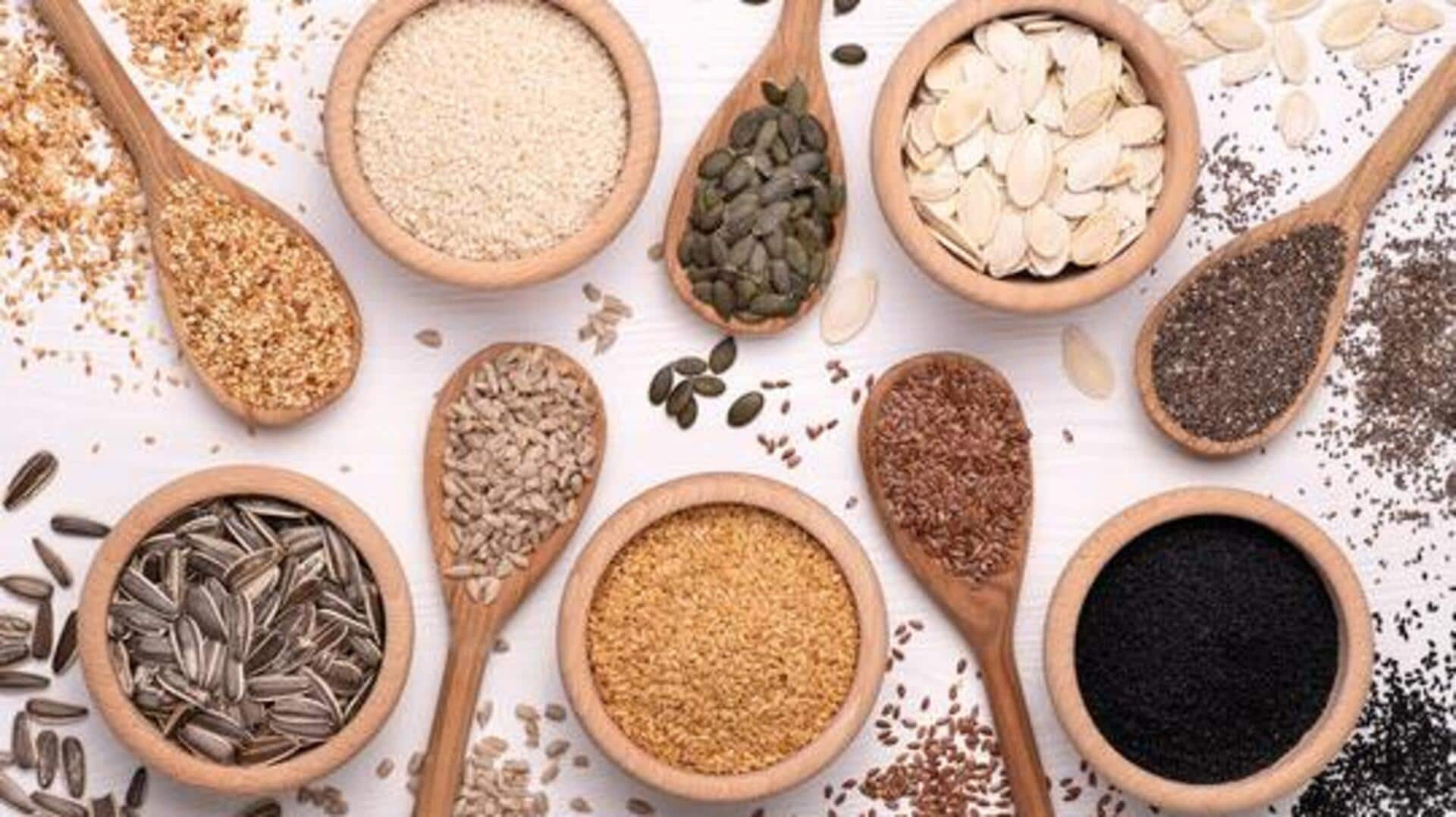
Seed cycling for hormonal health: How it works
What's the story
Seed cycling is a natural way of eating seeds in different phases of your menstrual cycle for hormone balance. The method is gaining popularity as more people look for alternatives to handle hormonal imbalance. By eating seeds like flax, pumpkin, sesame, and sunflower, people hope to achieve healthier hormones. Here's how seed cycling works and why it can benefit those with hormonal imbalance.
Follicular phase
Flax and pumpkin seeds in follicular phase
During the follicular phase of the menstrual cycle (day one to 14), flax and pumpkin seeds are advisable. Flax seeds are packed with lignans that may help modulate estrogen levels. Pumpkin seeds have zinc that helps progesterone production later in the cycle. Eating one tablespoon each of ground flax and pumpkin seeds every day during this stage could help balance hormones naturally.
Luteal phase
Sesame and sunflower seeds in luteal phase
The luteal phase runs from day 15 until you get your period. During this phase, sesame and sunflower seeds are recommended for their nutrient profiles. Sesame seeds offer lignans just like flaxseeds, while being rich in calcium and magnesium. Sunflower seeds provide vitamin E and selenium that promote progesterone levels. Adding one tablespoon each of these seeds daily could significantly improve hormone regulation.
Nutrient benefits
Nutrient-rich benefits of seed cycling
Not only does seed cycling target hormone balance, but it also provides nutritional benefits with the rich content present in these tiny powerhouses. Flaxseeds give omega-3 fatty acids; pumpkin seeds give magnesium; sesame seeds have calcium; sunflower seeds provide vitamin E—all of which are essential nutrients that contribute positively toward overall health when regularly added into meals or snacks during one's monthly routine.
Practical tips
Practical tips for incorporating seeds daily
Merging seed cycling into your daily routine can be easy with some handy tips. Grind fresh batches regularly to maintain maximum nutritional value. Add the ground seeds to smoothies, yogurt bowls, salads, or oatmeal as easy and versatile toppings. Store seeds in properly sealed containers, away from heat, light, and moisture. This ensures freshness and prevents spoilage.